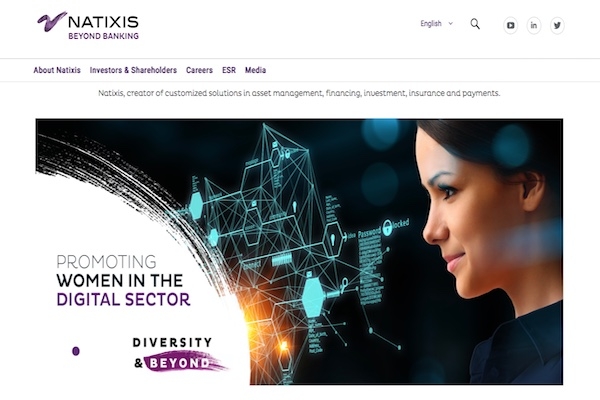A Natixis Investment Managers global survey of 200 fund buyers has found that, against the backdrop of market volatility and uncertainty, professional fund buyers have shown a preference for active management.
Natixis says that, despite ongoing geopolitical and economic uncertainty and a persistent low return environment, more than eight in ten (82%) believed that their return assumptions for 2019 were realistically achievable.
However, they reduced their long-term rate of return assumptions to an average of 7.7%, down from 8.4% in 2018.
Fund buyers were said to have rising concerns such as higher interest rates, greater equity market volatility and they declare they experience performance pressure from forces including central bank unwinding of quantitative easing, geopolitical disruptions and trade disputes.
Three-quarters of respondents agreed that alpha was becoming increasingly difficult to obtain as markets become more efficient, and they are willing to pay higher fees for potential outperformance and agree that the 2019 market environment is likely to be favourable for active portfolio management.
Matthew Shafer, head of global wholesale at Natixis Investment Managers, said: “If the active versus passive debate doesn’t look set to disappear, fund buyers are increasingly seeing the long-term value that can be generated by active management.
“A large proportion of global fund buyers (62%) agree that actively managed investments outperform passive portfolios in the long run, with 72% of portfolio investments being actively managed, a share which they expect to remain relatively constant over the next three years.
“Even in their passive holdings, over half (55%) are allocating more to smart beta than they were three years ago, which confirms that global fund buyers are diversifying traditional passive positions into other strategies.”
The survey revealed that fund buyers do not intend to make wholesale asset allocation changes in 2019, with a bias towards risk assets prevailing.
Equities and fixed income remained the most popular asset classes, but fund buyers intended to trim their overall equity allocation by 1.2 percentage points to 43% (down from 44% in 2018).
They also planned to increase weightings in alternatives (+19% in infrastructure; +15% in private debt; +17% in real estate) with 70.1% of overall alternative allocations being made into liquid assets.
Alternatives are seen as valuable tools to help meet performance objectives, manage risk and diversify holdings.
The poll also revealed two-thirds (67%) of fund buyers agreed that including ESG factors will be standard practice for all investment managers within five years.
Half (49%) believed that ESG factors were important in their organisation’s current manager selection process, and two-thirds said they would increase their allocation to ESG strategies in 2019.
More than half (57%) contend that there was alpha to be found in ESG investing.
Fund buyers were increasingly incorporating ESG considerations into investment decision-making and analysis to align investment strategies with their organisational values.
However, their concerns included the conflict between short-term return goals and long-term sustainability objectives, a lack of demonstrated performance track records and fears that companies may be “greenwashing” to enhance their public image.
Mr Shafer added: “Appetite for ESG is growing stronger every year as investors increasingly seek to reflect their personal values in their portfolio strategies, and the longer-term return benefits of sustainability are being more widely recognised.
“However, we do hear and share fund buyers’ concerns about ‘greenwashing’.
“Robust and clear taxonomy, labelling standards across the industry and across jurisdictions, and transparency around ESG reporting are critical to maintaining the integrity of ESG investment products.
“As a leading active manager, we have high conviction and we consider that engagement with management around ESG factors and exercising voting rights accordingly are part of active investing and long-term performance.”

